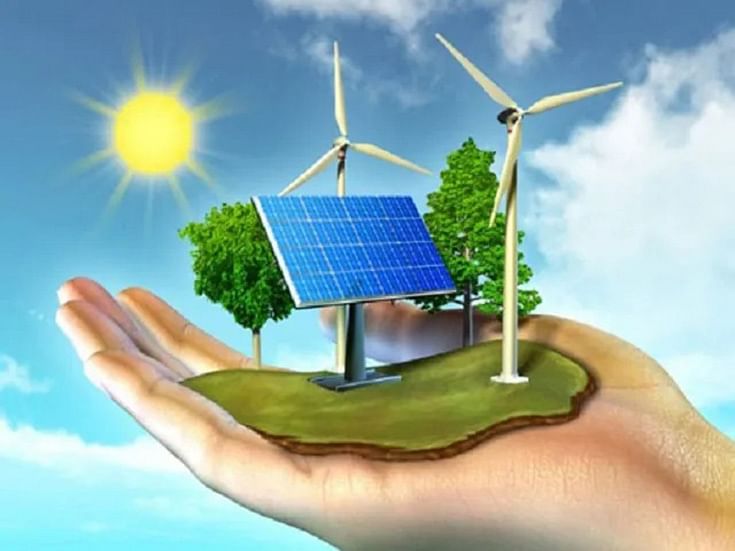India Auto Inc outline sustainability targets on National Energy Conservation Day
December 14 is observed as the National Energy Conservation Day in India.
December 14 is observed as the National Energy Conservation Day in India. Organised by the Energy Efficiency Bureau (BEE), a subordinate Ministry of Power, its primary purpose is to showcase India's achievements in energy efficiency and conservation. If we break it up in the industry perspective in the country, the manufacturing segment including the auto manufacturing units are amongst the top consumers with almost one-third of the total energy consumed by them.
It does not therefore come as a surprise that this industry is also one of the top avenues to further the cause of energy efficiency and renewable energy measures. The challenge of meeting the requisite energy demand and minimising carbon emissions to bring a sustainable and steady growth along with it propelling companies towards a sustainable growth chart.
The auto industry too is working on its bit towards further sustainable mobility and cutting down harmful emissions. The current slew of EVs and the new launches aligning with the race to meet the April 2020 BS VI regulation highlights the changing trends. Commenting on the auto industry’s initiatives, a spokesperson for TVS Motor says, “During 2018-19, the company had invested Rs 8.79 cr towards optimisation of compressor, fuel conversion from HSD to Propane for in paint process application and in implementation of various energy saving projects for energy efficiency as well as for reduction of carbon foot print. With this Clean Development Mechanism [CDM], the renewable power contributes to 60% in overall share of power. These initiatives of renewable energy resulted in CO2 emissions reduction of about 50,000 tons during 2018-19.”

(BEE), a subordinate Ministry of Power, aims to showcase India's achievements in energy efficiency and conservation through the National Energy Conservation Day Function held on December 14
Additionally TVS Motor is also, “planning to invest around Rs six cr during 2019-20 to enhance solar, wind power under 'Group Captive Mode' and for implementing other planned energy efficiency measures. Some of the future course of action for energy conservation include- development of new technologies for reduction of emission and reduction of CO2 to meet future emission norms; development of new technologies, materials and processes for enhanced environmental sustainability; development of technologies including alternative materials, weight reduction, cost reduction and improvement of fuel economy; development of new technologies in the areas of Hybrid and Electric power trains.”
Prashanth Achar, Chief Executive Officer, GP Petroleums added that, “As players in the automotive and industrial lubricants sector, we are sincerely dedicated, to continue introducing products bearing in mind this objective. Our low viscosity synthetic engine oils help reduce friction at a wide range of operating temperatures and increase efficiency. Our range of high performance semi-synthetic cutting coolants, semisynthetic heat transfer oil, aluminium based performance greases and ester based neat cutting oils help in reducing energy consumption and carbon footprints.”
Tata Technologies further added on the sustainability aspect. JK Gupta, Chief Financial Officer, Tata Technologies said, "As a prominent global engineering service provider, our innovations in full vehicle design, lightweighting, electric vehicle programs and smart manufacturing help our clients reduce the carbon foot print of their products and their operations thereby contributing to the overall sustainability objective. Furthermore, we have integrated sustainability in our operations through smarter facilities focussed on energy conservation, water conservation, waste management, and improving overall green forest cover through tree plantations.
RELATED ARTICLES
Cosmo First diversifies into paint protection film and ceramic coatings
The Aurangabad, Maharashtra-based packaging materials supplier is leveraging its competencies in plastic films and speci...
JSW MG Motor India confident of selling 1,000 M9 electric MPVs in first year
The 5.2-metre-long, seven-seater luxury electric MPV, which will be locally assembled at the Halol plant in Gujarat, wil...
Modern Automotives targets 25% CAGR in forged components by FY2031, diversifies into e-3Ws
The Tier-1 component supplier of forged components such as connecting rods, crankshafts, tie-rods, and fork bridges to l...






 By Autocar Professional Bureau
By Autocar Professional Bureau
 16 Dec 2019
16 Dec 2019
 8869 Views
8869 Views









